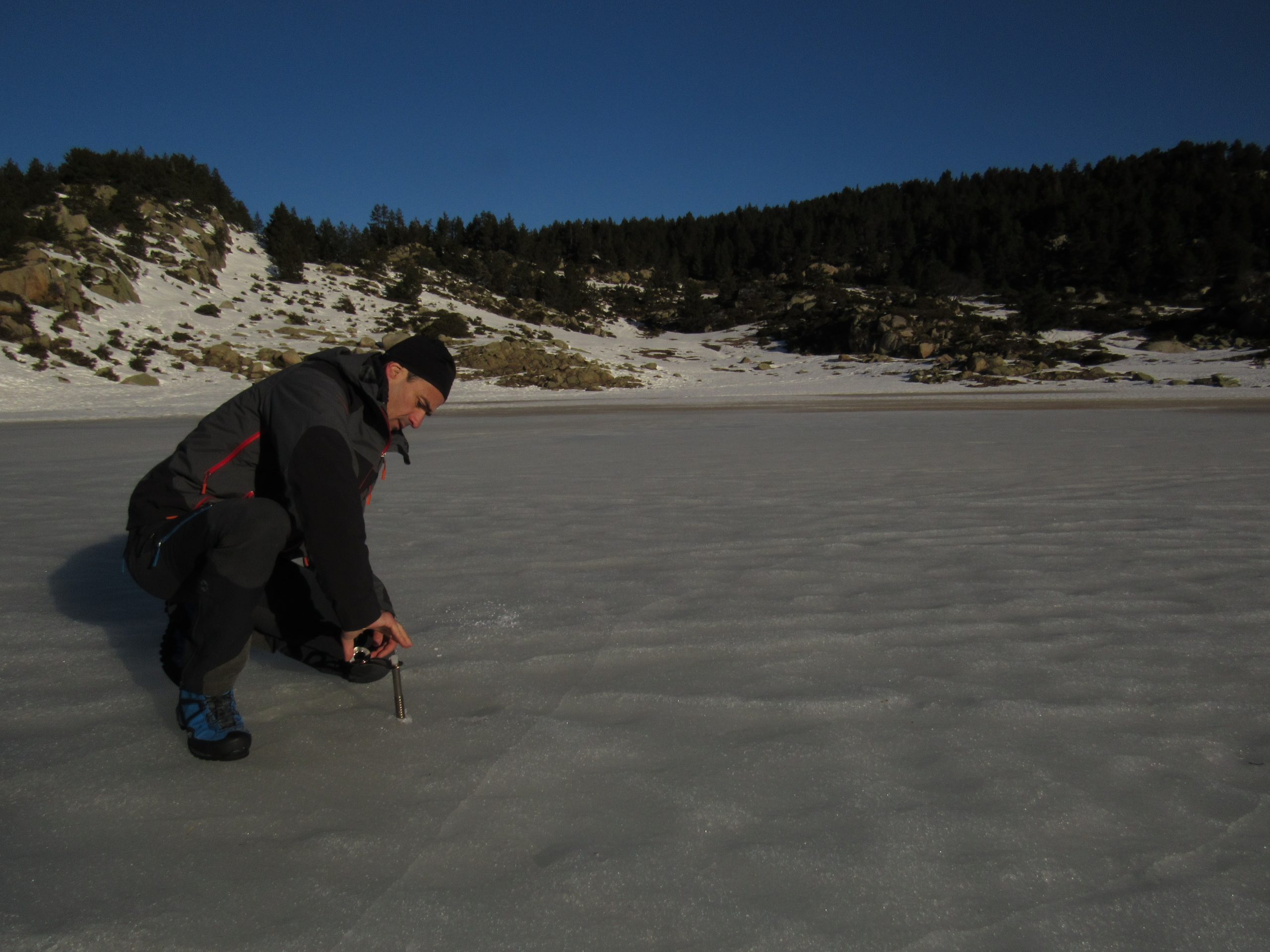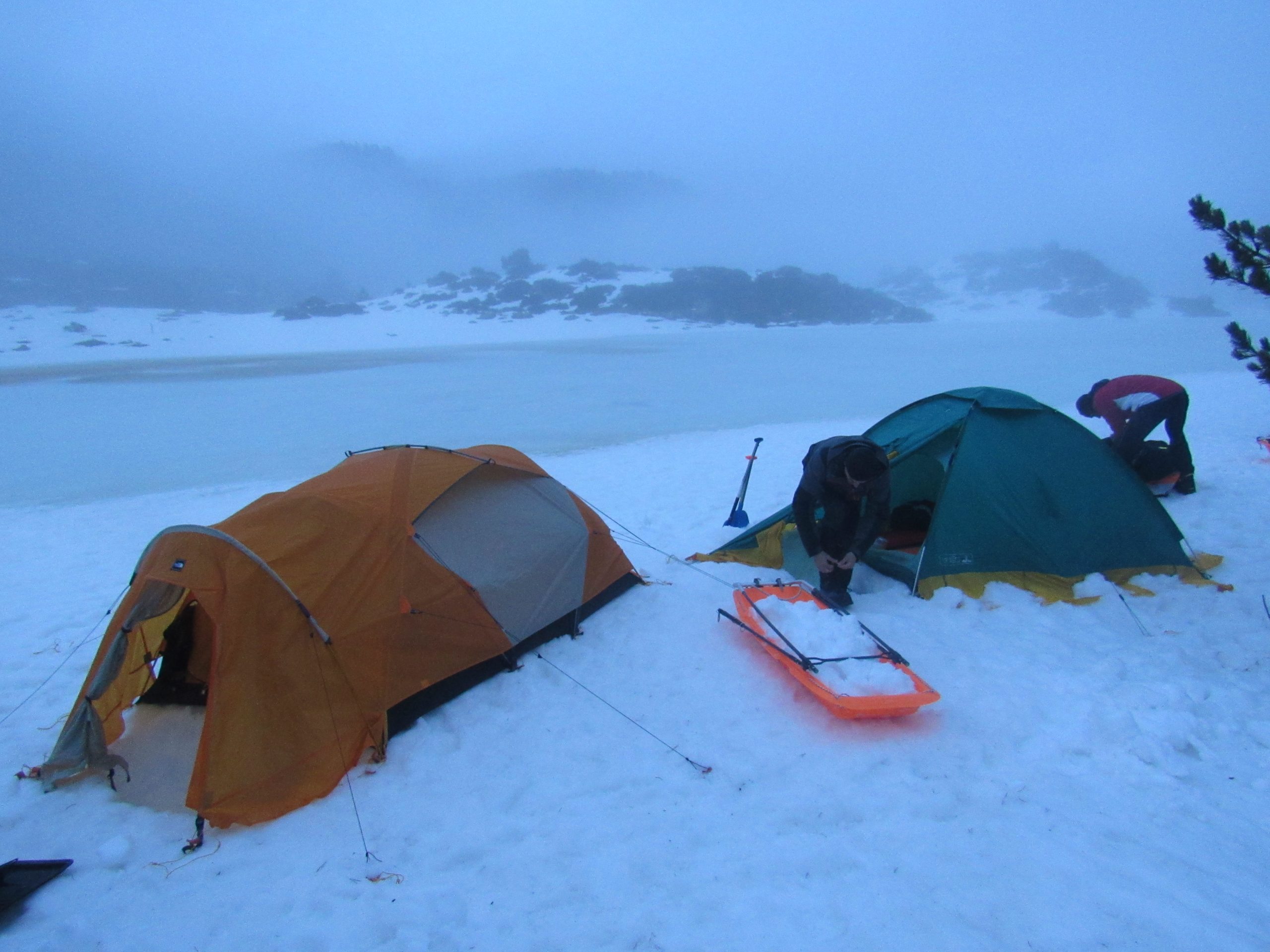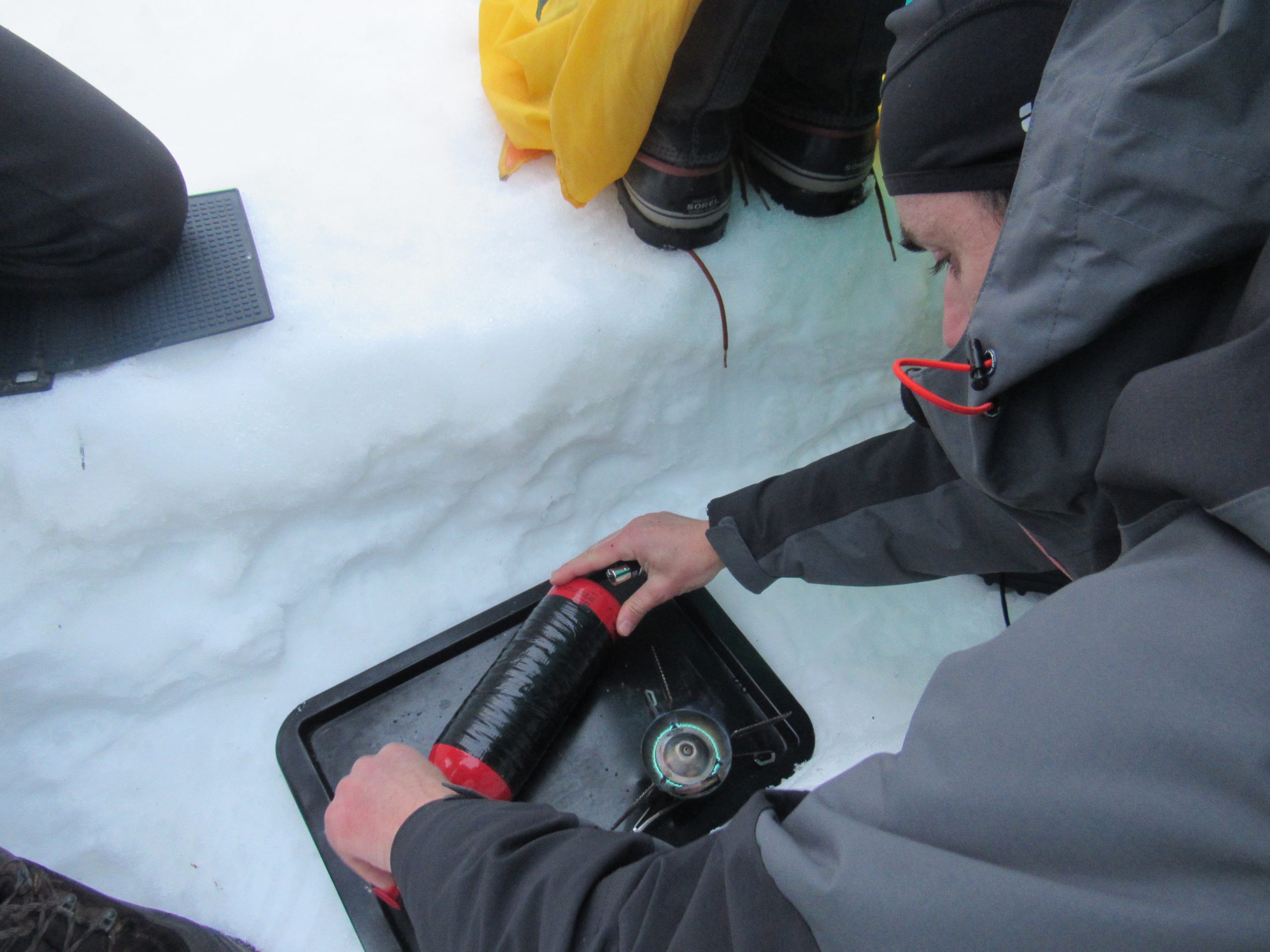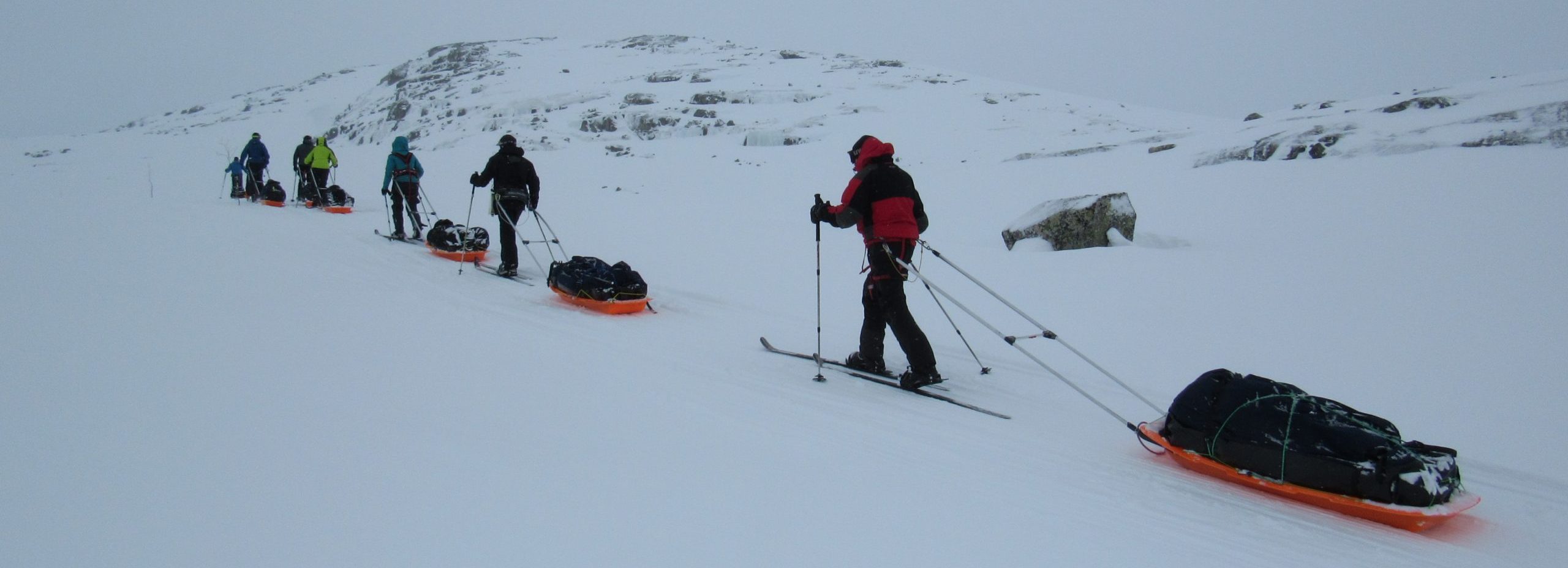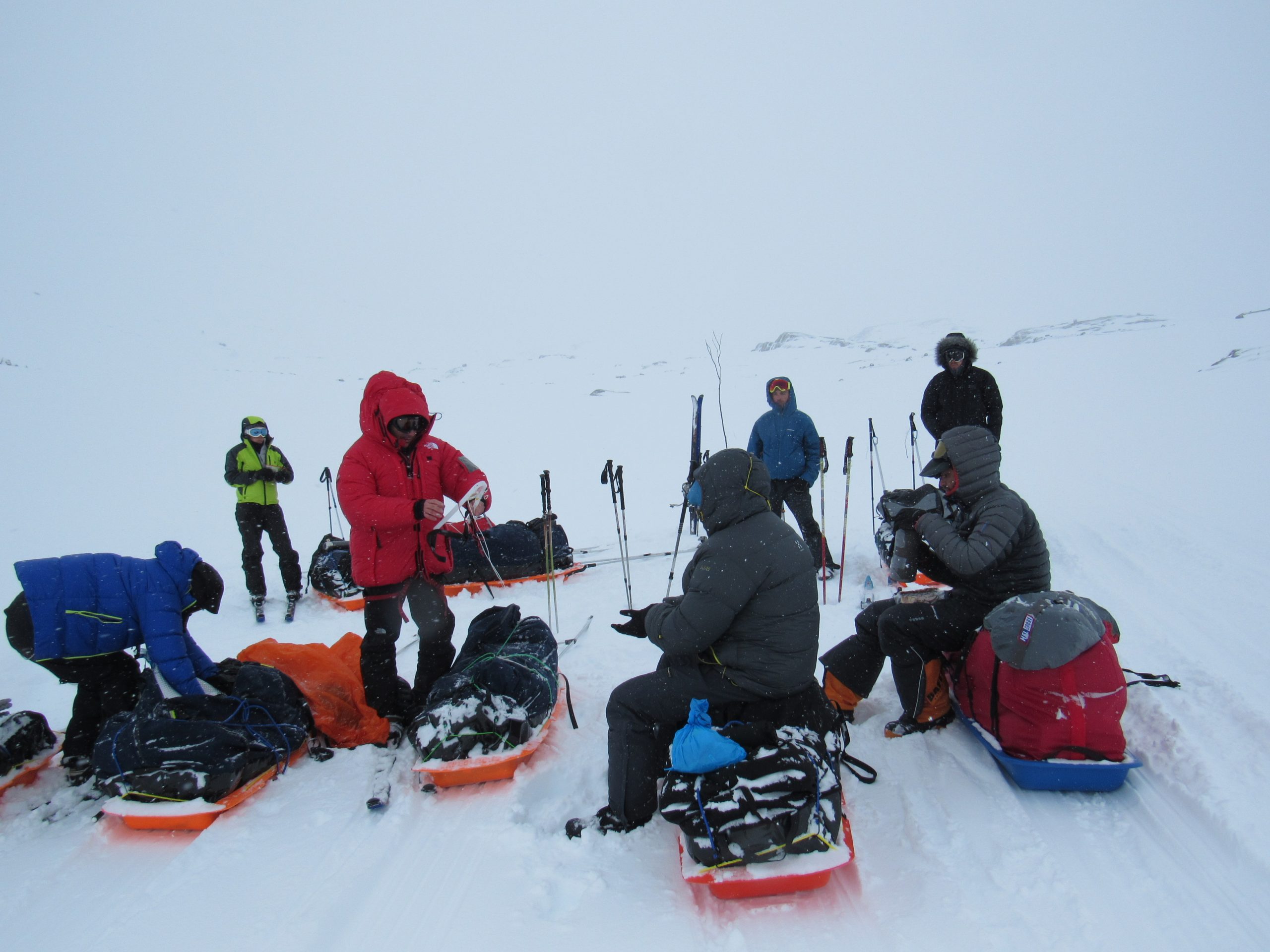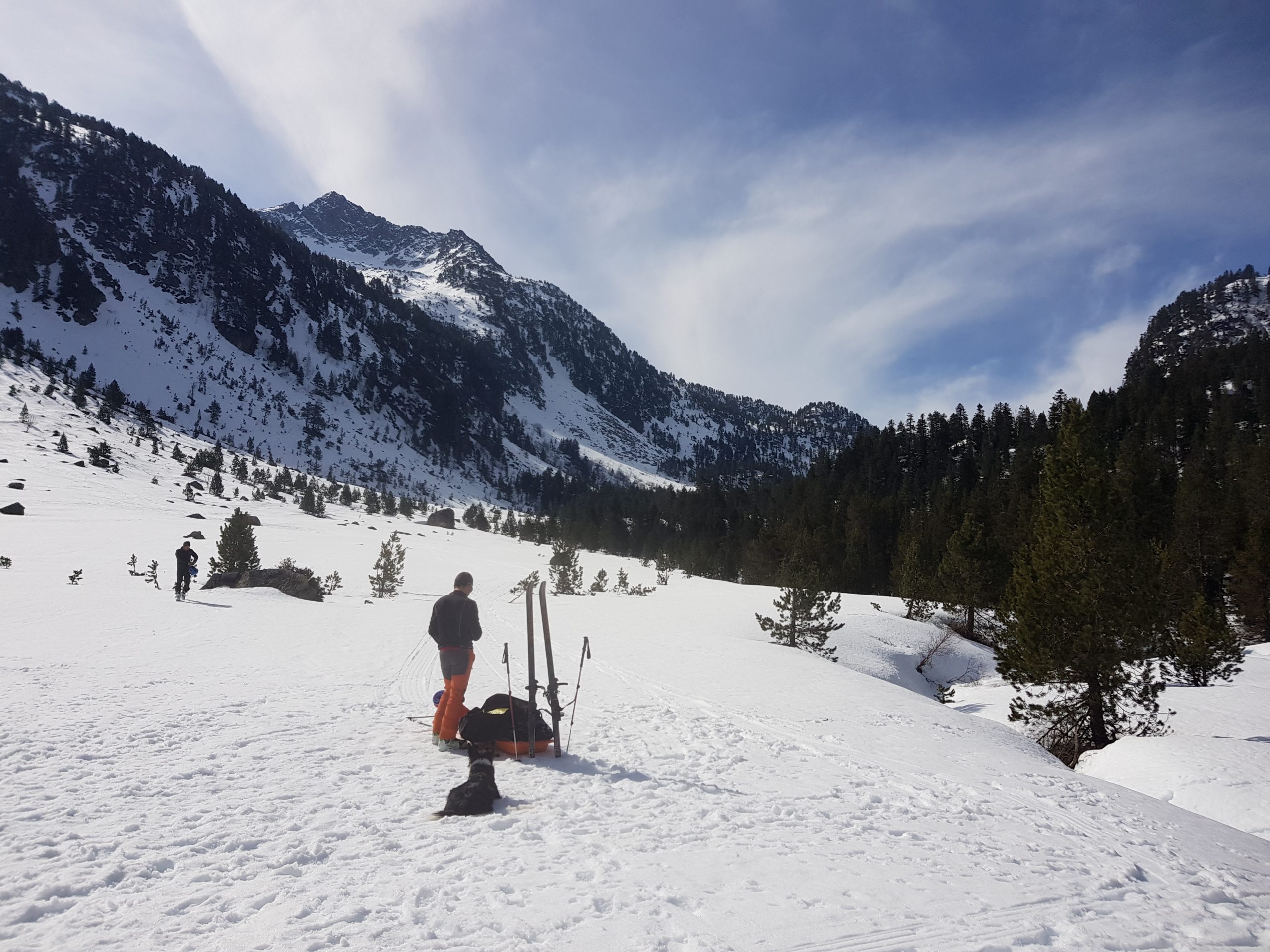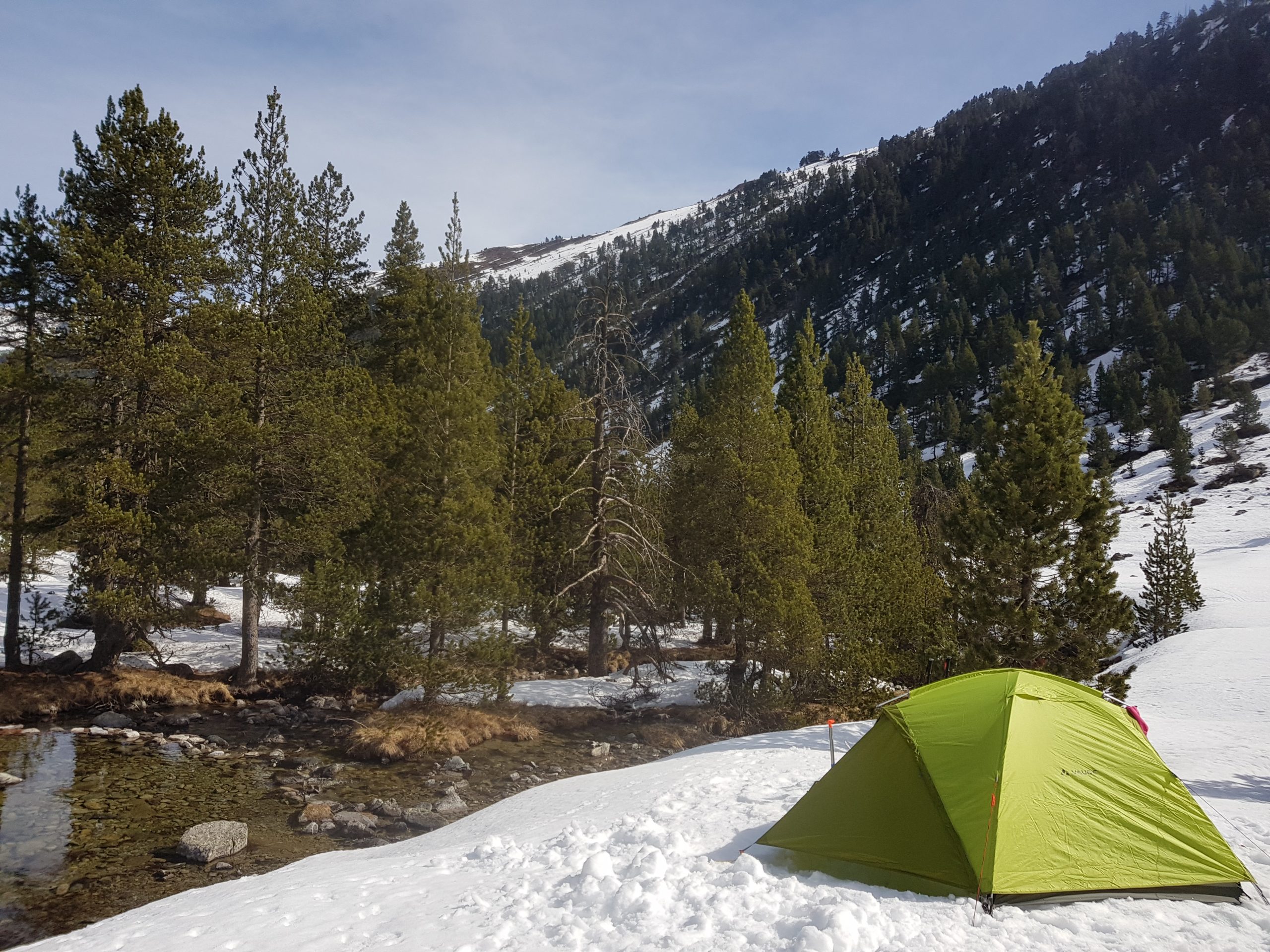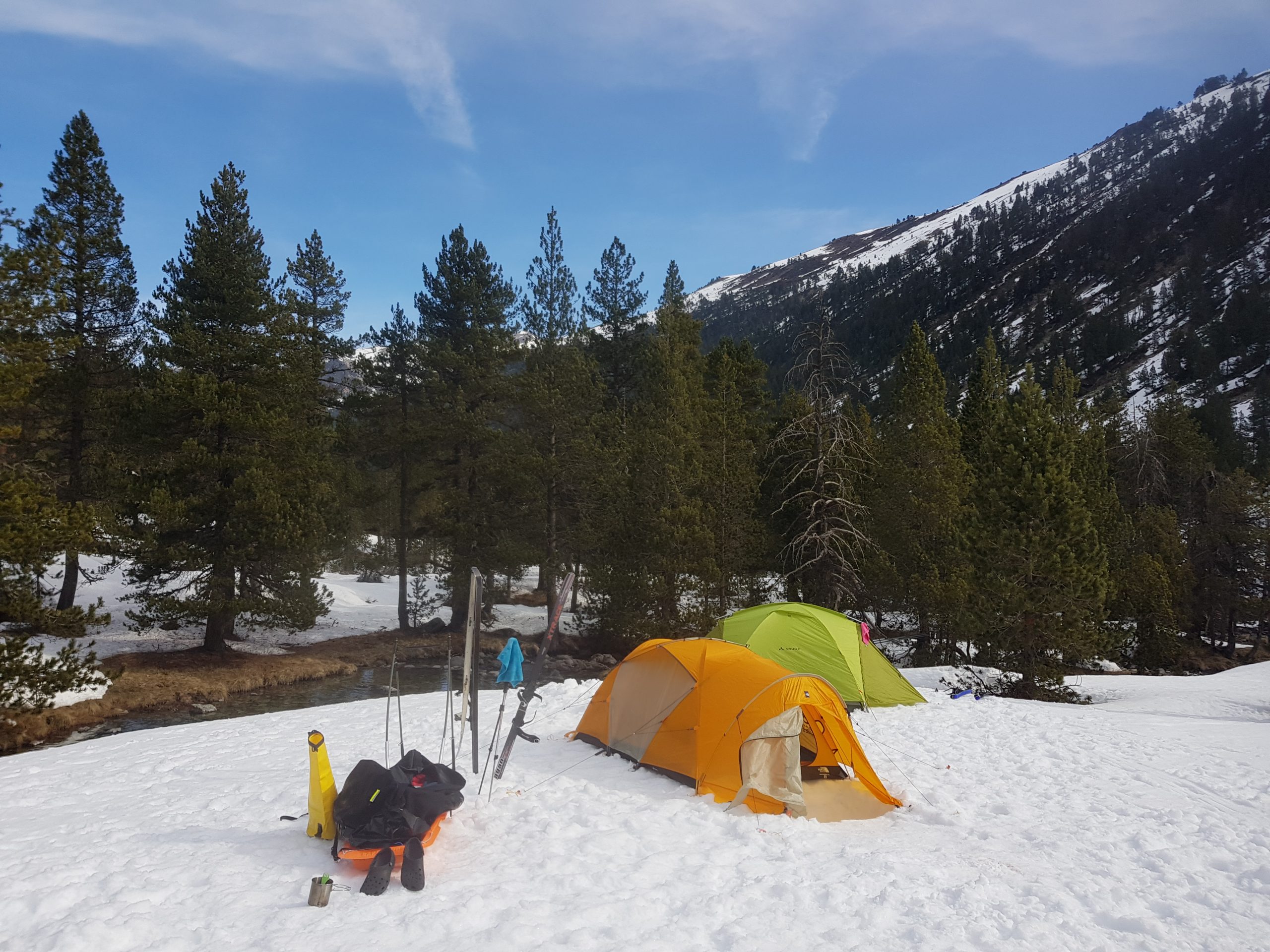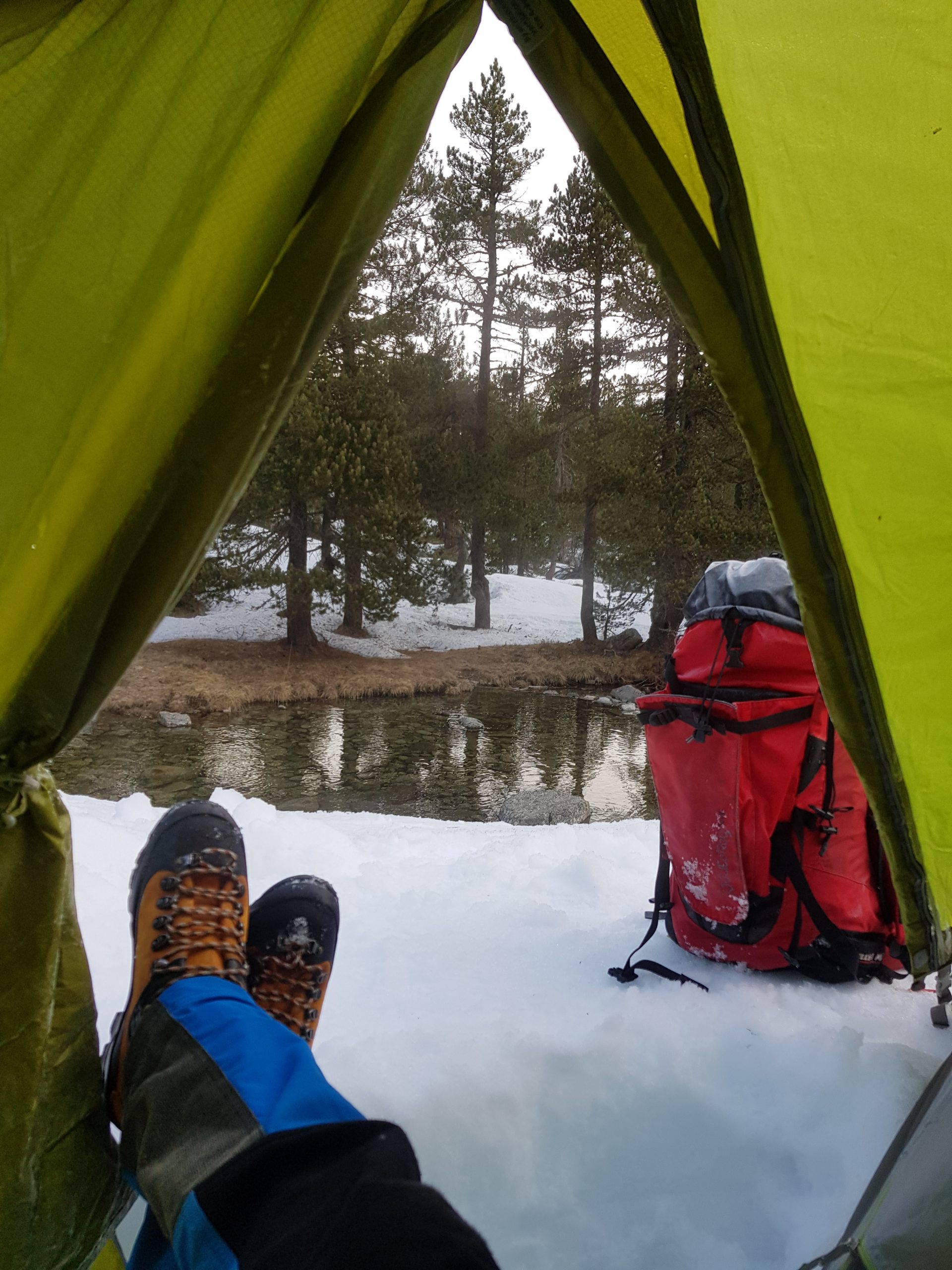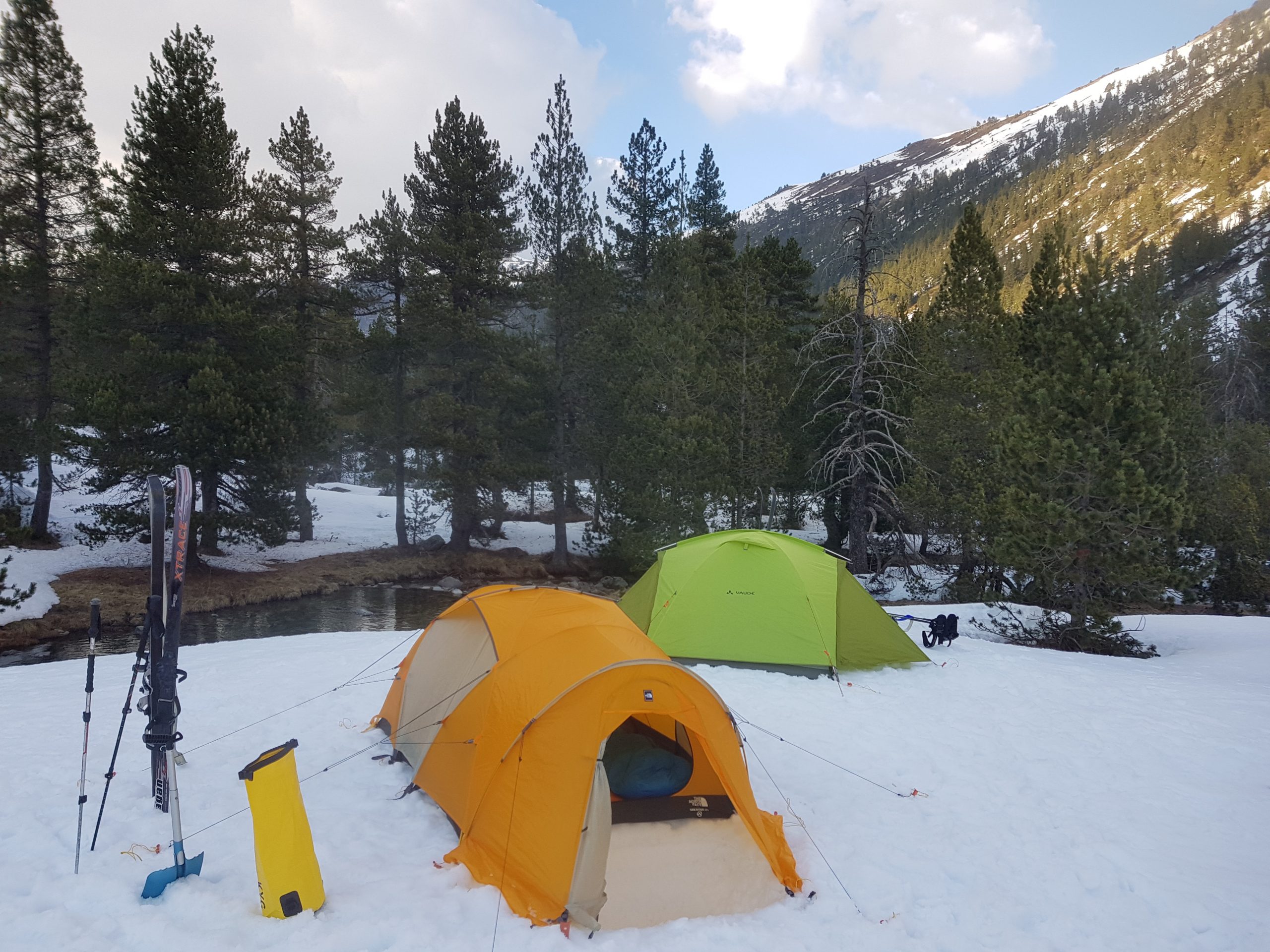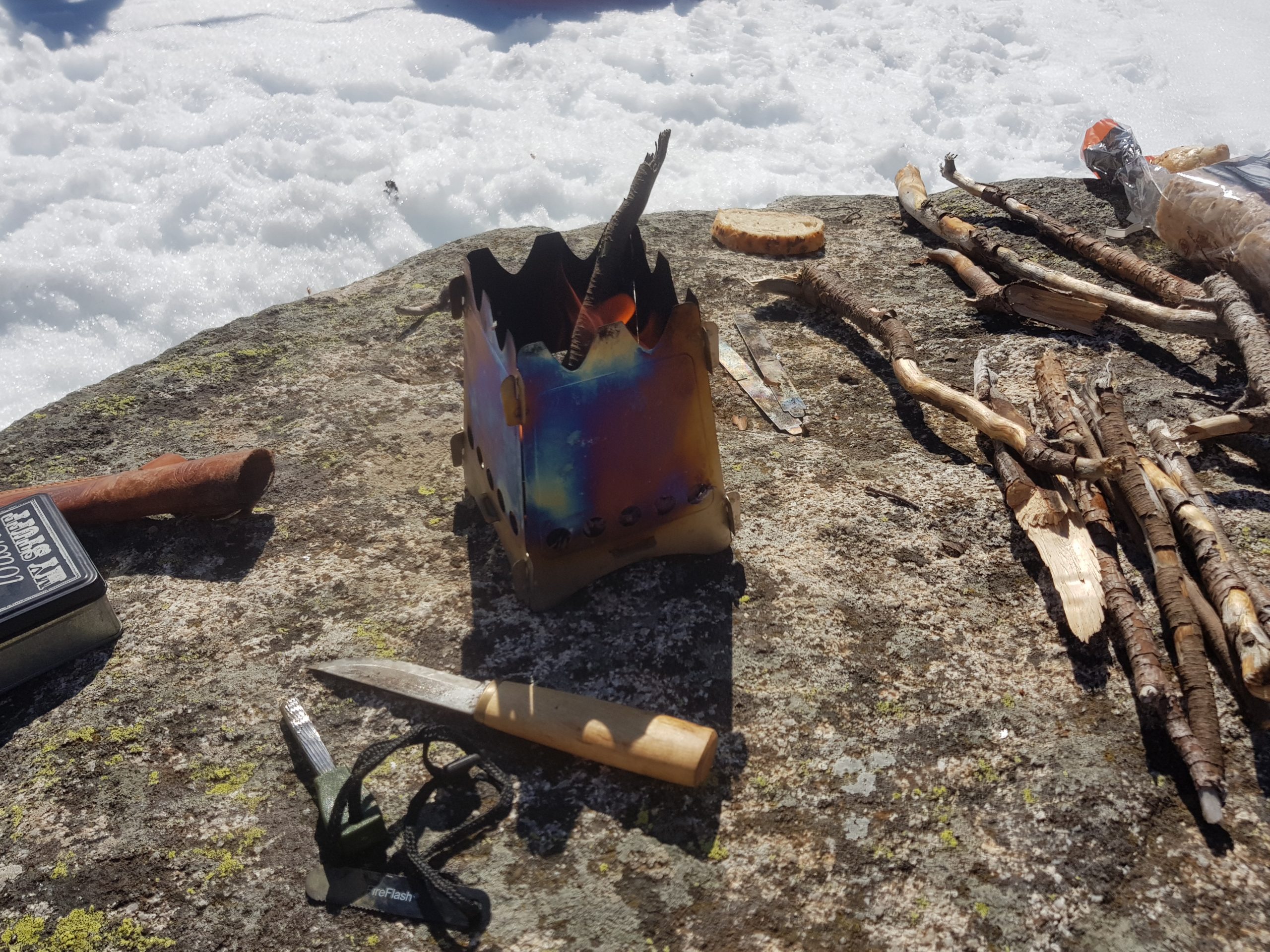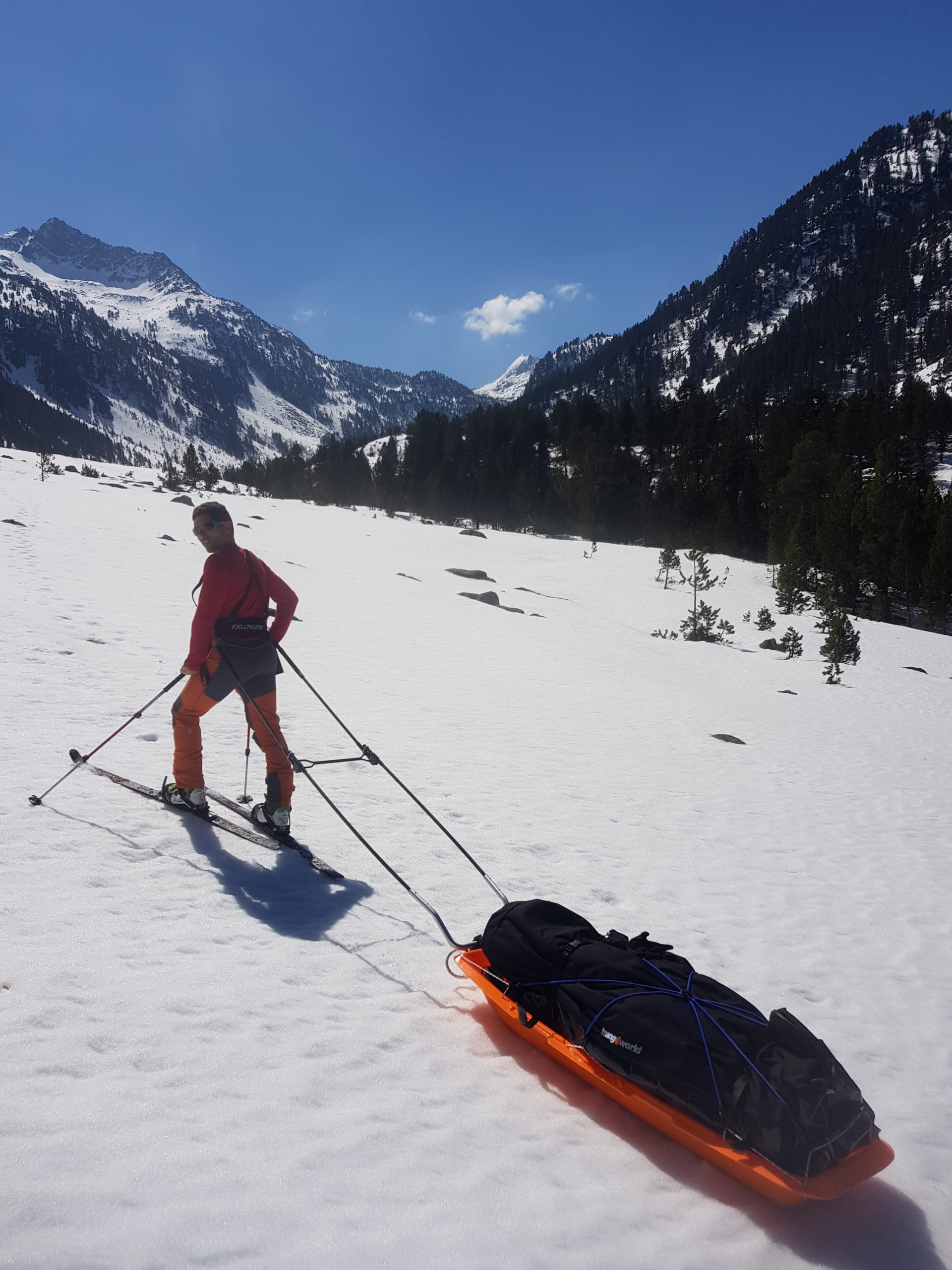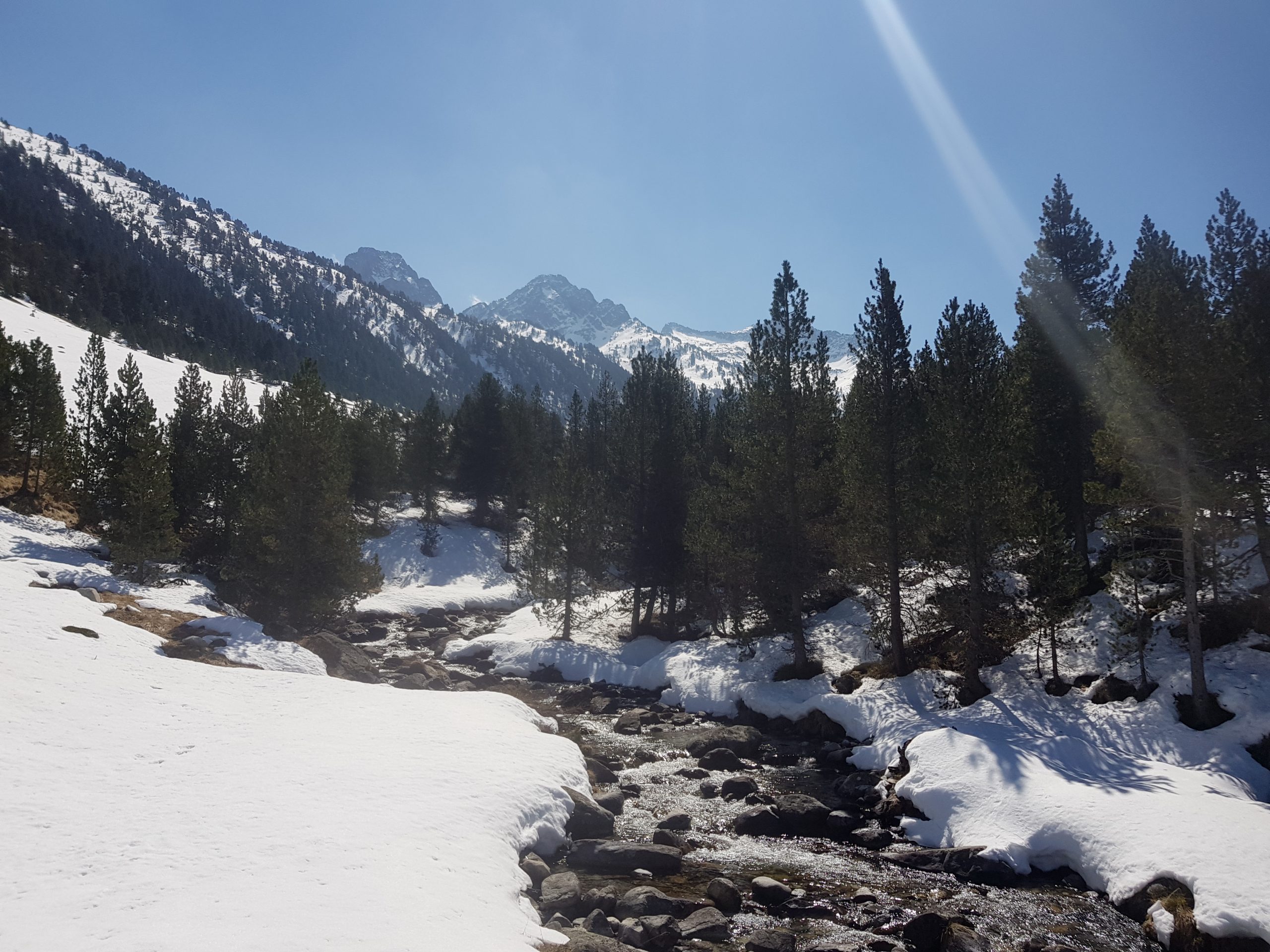Training Objectives
– Discover an activity that provides a new way of feeling and relating to nature.
– Enjoy an environment of extraordinary beauty, being part of it.
– Know and know how to use the progression equipment properly (snowshoes / skis / pulka)
– Learn the basic techniques of winter camping (winter camping)
– Get to know the different equipment and materials for winter camping
(tents, sleeping bags, mattresses, stoves, fuel types)
Training contents
• Introduction:
If you are a nature lover, you are passionate about hiking and you have already made a trip of several days from shelter to shelter or in shops, you will surely have tried snowshoes already in winter. Entering a winter landscape immerses you in a completely different environment. Even a corner close to civilization about your senses in the most rugged environments. A bath of emotions and sensations difficult to explain. It sticks forever.
A trek with pulka gives you the opportunity to get further, more comfortably and thus be able to visit corners that would not be accessible on foot on one-day routes, where there are no shelters or facilities.
Crossing with skis or snowshoes with pulka is the natural progression for all those who practice hiking and trekking for several days in summer and want to carry out multi-day activities also in winter independently. This opens up a world of new possibilities, with itineraries, destinations and difficulties for all tastes.
• Audience:
Anyone who is interested in knowing how multi-day trips are made in winter environments. As well as knowing some of the fundamental techniques in this type of itineraries.
• Contents:
– Equipment: Clothes (layers and moisture management), shops
– Material: X-country ski / snowshoes (knowledge of the material and technique), Pulkas (type of drag: bars, rope, brakes, organization)
– Food: (water and food and ration planning)
– Wintercamping: Organization inside and outside the store, stove, how to cook, repair
– Safety and rescue: The windsack, introduction to safety on the ice (rescue rope, icepicks, icepole)
– Survival: Improvisation of shelters
• Format:
– 20 – 22 hours approx. Saturday from 8 a.m. to 8 p.m .; Sunday, 8:00 a.m. to 6:00 p.m.
Activity scheduled in the AMAROQ EXPLORERS calendar. Also open on demand. It can be adapted to different user groups.
- - No previous training is required. Just want to learn, experiment and share.
- - Physical conditions: Be able to do two days moving through a snowy and possibly cold environment, dragging a sled (pulka). Anyone who does physical activity on a regular basis and goes out on the mountain relatively often should have no problem.
- - - Winter hiking boots
- - - Equipment: Clothing suitable for winter activities
- - - Camping: Suitable sleeping bag, mat, Thermo
- - - Personal equipment: Sunglasses, storm glasses, sunscreen, personal hygiene kit
- - - Any questions, please contact us. Interested will be sent listing with the recommended material.
- X-country snowshoes / skis
- Poles
- Pulkas / bars / harness / carrying bag
- AVD / Shovel / Probe
- Tents
- Stoves
- Accident and RC insurance
- Accredited guide from Amaroq Explorers
- Taxes
- Trasportation
- Meals
- Anything not specified as included
- 2 persons 210 €
- 3 persons 170 €
- 4 persons 160 €
- 5 persons 150 €
- 6 persons 140 €
-
– Arrival in the morning at the meeting point
– Presentation of the activity and the members of the team
– Distribution of equipment and material. Assembly of the pulkas.
– Start of the itinerary
– Eat during the tour
– Installation of the camp
– DinnerThroughout the activity, the contents of the clinic will be explained. Through guided experience, participants will be able to integrate this knowledge in a practical way, resolving any doubts or concerns that may arise.
-
– To have breakfast
– Lifting the camp
– Return to the meeting point
– Eat during the tour
– Recovery of material and equipment
– Good byeThroughout the day will continue to explain the contents of the pulkas clinic, following the same dynamics as the previous day.
